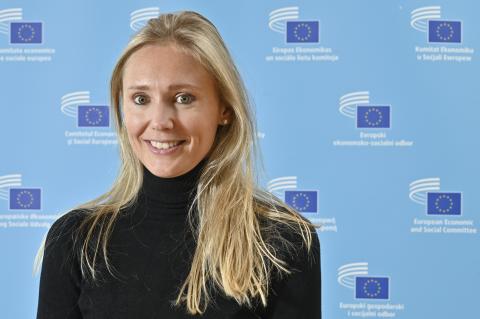European Economic
and Social Committee
The Kremlin's threat to cut off Russian gas bypasses Europe. As well as Poland and Bulgaria, Finland, Denmark and the Netherlands have joined the list of countries who have fallen foul of the Russian government and seen their gas supplies cut off.
On May 18, the European Commission unveiled its €300 billion REPowerEU plan to eliminate Russian energy imports by 2027. EU governments are looking for solutions as to how to replace Russian energy supplies quickly. They are speeding up the rollout of renewables and digging deep into their coffers to build the infrastructure needed to import liquefied natural gas and fill up gas storage. They are also looking for areas where energy can be saved and gas can be replaced. Meanwhile, the clock is ticking and nobody knows who will be the next target in the game of Russian roulette. There is no doubt - the situation is extremely serious and calls for unprecedented action.
Extra investments in infrastructure and rollout of renewables seem difficult, especially in times when economies are recovering from COVID-19. Each euro spent has to be generated in an economy that is currently facing high inflation, and when borrowed it has its price and contributes to the risk of indebtedness. At the same time, market rules mean that, while there is a higher demand, prices are also increasing. Moreover, additional safety and security costs caused by the war threaten to drive energy prices up even higher. Another challenge we face is the disruption in supply chains that is hampering the rollout of renewables.
To accelerate deployment of clean technologies, the REPowerEU Plan rightly focuses on speeding up permit procedures, with new wind and solar projects being declared a matter of "overriding public interest". It also calls, in line with the EESC opinion on REPowerEU Communication, for "go-to" areas to be introduced at national level in low environmental risk zones. At the same time, it suggests increasing the EU's renewable energy target to 45% by 2030, up from the 40% target tabled last year, and increasing the energy efficiency target from the 9% goal put forward in July 2021 to 13%. It also proposes making solar panels mandatory for public and new residential buildings by 2025 and 2029 respectively. Given the current market situation, it is clear that it is simply not technically possible to achieve these goals. It is good to be ambitious, but we have to think how realistic and trustworthy our aims are.
The Commission also points out in the plan that weaning countries off Russian energy will lead to higher and more volatile energy prices in Europe. The situation requires targeted temporary measures in Member States which will distort the EU market as little as possible, or measures at EU level that will not endanger decarbonisation efforts or energy supply. All in all, market interventions risk working against longer-term objectives as they will cause investment uncertainties and discourage decarbonisation in the energy industry.
The European electricity market has proved that it can operate well in terms of avoiding electricity curtailment or even blackouts in certain areas. Solidarity among Member States on the EU electricity market will be crucial, not only ahead of the next winter but also ahead of the next spin of the wheel in the game of "Russian" roulette.
Alena Mastantuono, EESC member
